
In the past few years, I’ve noticed an increase in student interest about narcissism. Some will self-disclose that they have identified a narcissistic person among their families, friends, or partners. I always believe them. There is enough information about narcissism on the internet and in the media that their experiences should be trusted and validated.
The availability of information about this trait has changed the way that the term “narcissism’ is used in conversation, and that can lead to some misunderstanding about narcissistic traits vs Narcissistic Personality Disorder. As our culture evolves and changes, so naturally does the language that we use to describe phenomena. But, there are important differences clinically between the two that are meaningful. Using these terms interchangeably could cause misunderstandings (at the very least) or invalidation of abuse victims (at the very worst). It makes the topic worth talking about.
There is a domain of psychology focused on describing and understanding our personalities– the unique constellation of factors that make you you, and that make you unique from everyone else. Traits are the building blocks of our personalities. Are you trustworthy? Organized? Helpful? Agreeable? Those might all be described as traits.
It’s important that we don’t assign value on traits, because traits are not “good” or “bad” in and of themselves. Some may also identify with traits like “messy” or “neurotic” and that’s because all humans have traits that they do and do not like, or that don’t fall neatly into society’s expectations. Having a balanced view of yourself is health-promoting. Nobody is perfect, and that’s an empowering fact to accept.
Just the same as traits aren’t “good” or “bad,” we don’t think of them as being “yes/no” or “on/off,” but rather on a continuum, a scale of “more or this” or “less of this.”
Let’s imagine there’s a trait of “organized” and plot it on the X-axis of a graph.
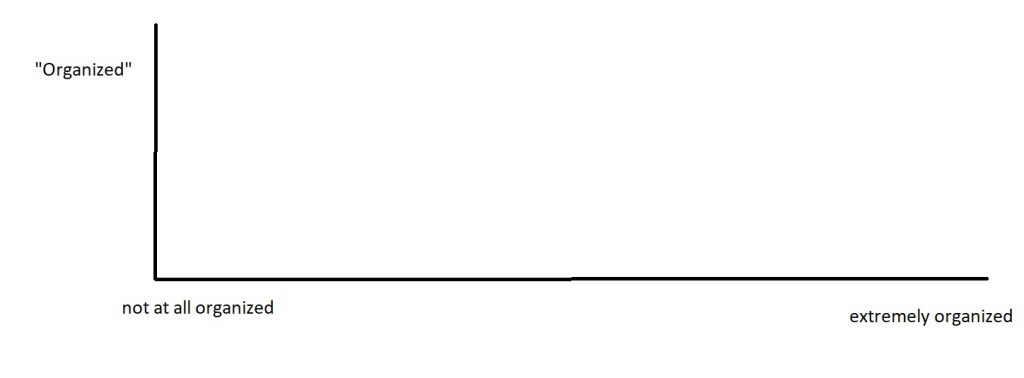
Statistically speaking, there are very few individuals who would fall at one of the extremes; most people will self-identify as being somewhere in the middle. Let’s imagine for the sake of argument that “organized” follows a normal distribution, which I’ll add to the graph.
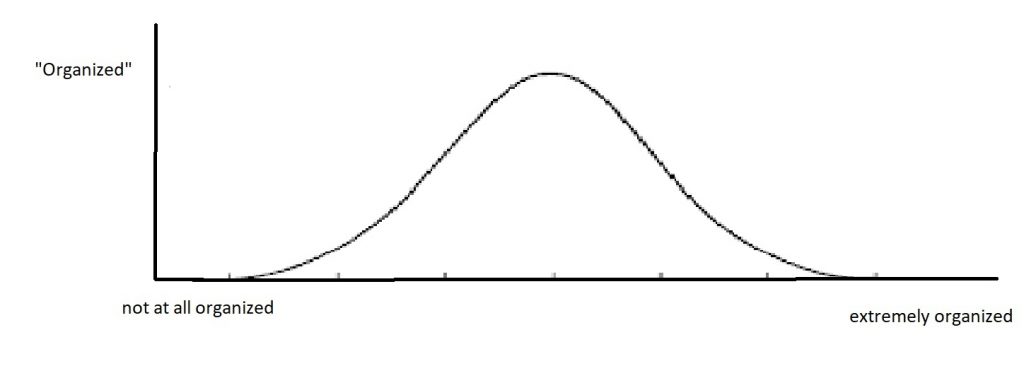
At this point, we could have people take a survey asking them to rate their organization level on a scale of 1-10. We might end up with data like this:
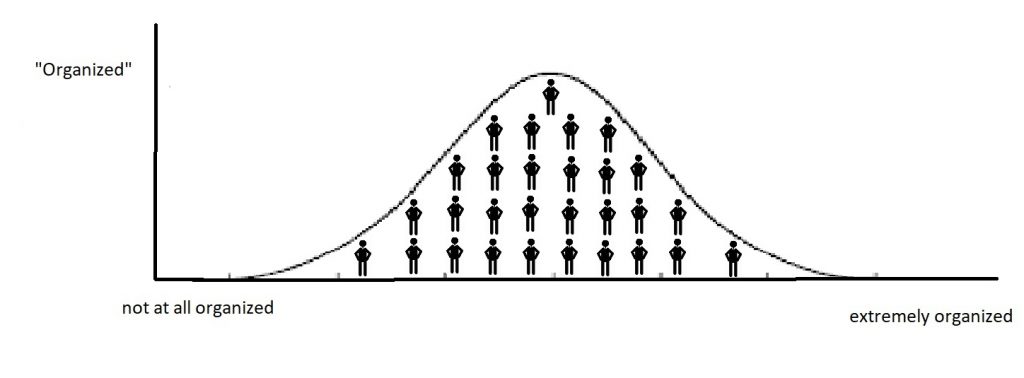
As evidenced, a few might identify themselves as extremes, but most people will fall somewhere in the middle- maybe somewhere between a 3 and a 7 on the scale. I’d probably rate myself as a 3:
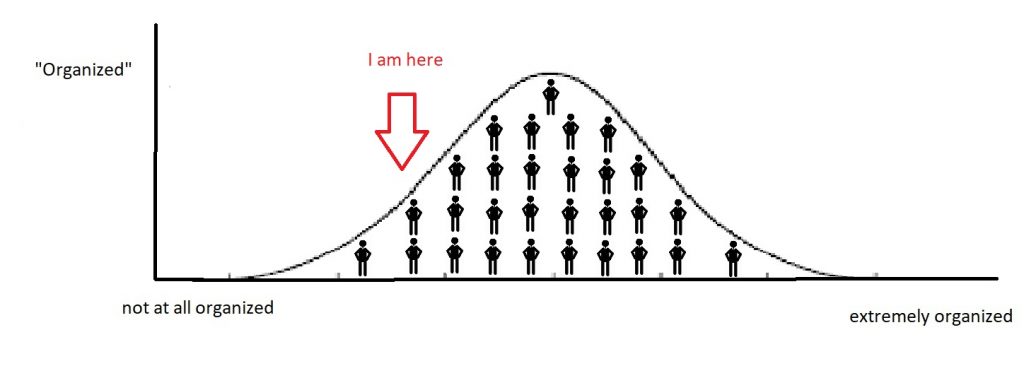
But, what about those extreme cases? They might be rare, but they may be clinically important.
Next, let’s pretend there’s an imaginary line by which scoring very high or very low is associated with some sort of dysfunction in social life, home life, or work life, leading to some kind of distress for the person (or for those around them)
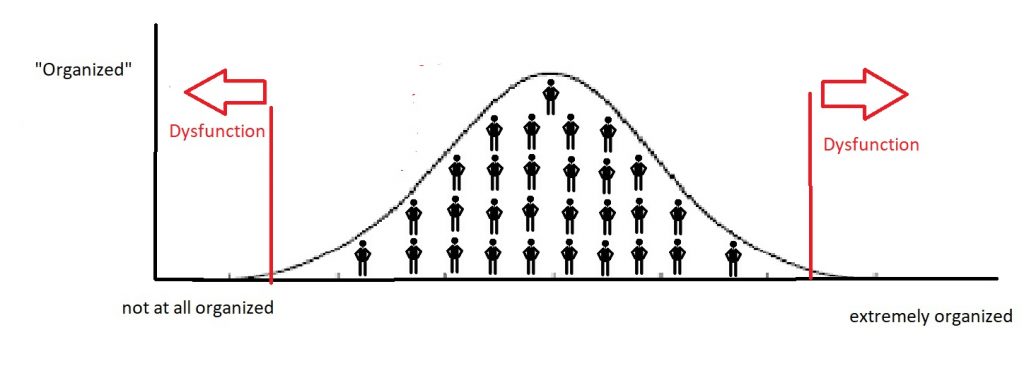
Those at the very low end of the scale might lack organizational skills in such a way that they lose important documents, leading to being laid off or fired. Those at the very high end of the scale might be easily frustrated with people or situations that are fluid or messy, leading to missing out on social opportunities.
If a trait is causing dysfunction or distress in someone’s life, they might rely on professional guidance to gently and slowly “tweak” ways of thinking and behaving. Such interventions can not only improve one’s quality of life, but also that of the people they love. It is noble to put in that kind of work.
Much like the example above, narcissism is a trait that we all have in amounts “more” or “less” with most levels being normative in nature. In fact, there is some evidence that there is a level of healthy narcissism that is health-promoting. Balanced with other traits, people who score relatively high on narcissism may still be excellent relatives, friends, and partners. Though, it’s usually the extremes that come most easily to mind. That’s because when we spend too much time in an egocentric point of view, we’re paying less attention to how others are thinking and feeling, and more likely to engage in behaviors that affect them negatively. The results can be very hurtful to others and have a lasting effect on their self-worth and self-esteem.
I think this is what students mean when they talk about narcissists.
You might also like: Personality and Gender
You might also like: Visiting a dry well
